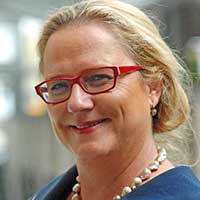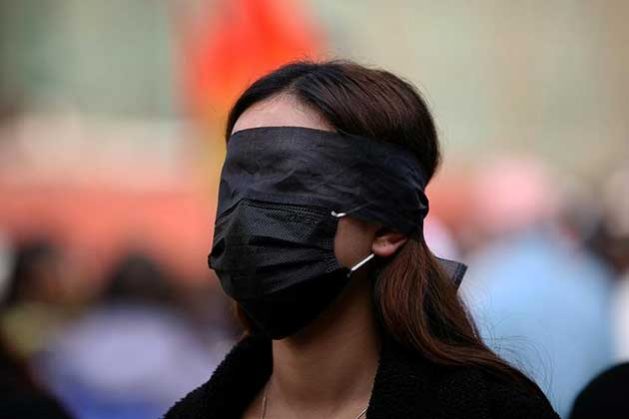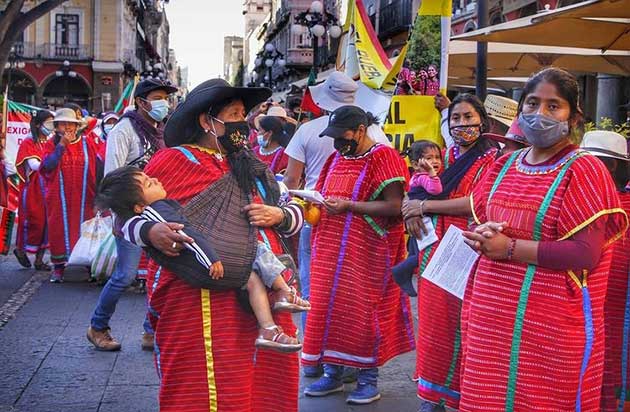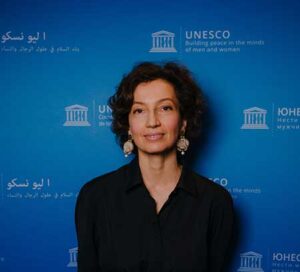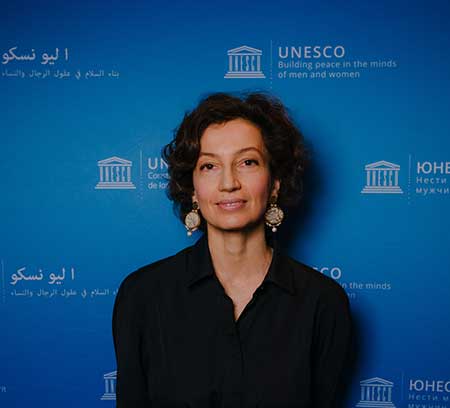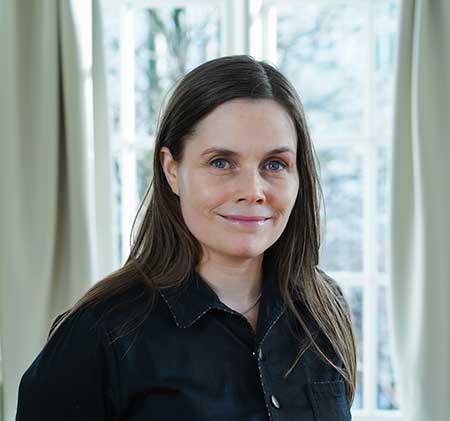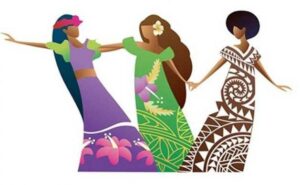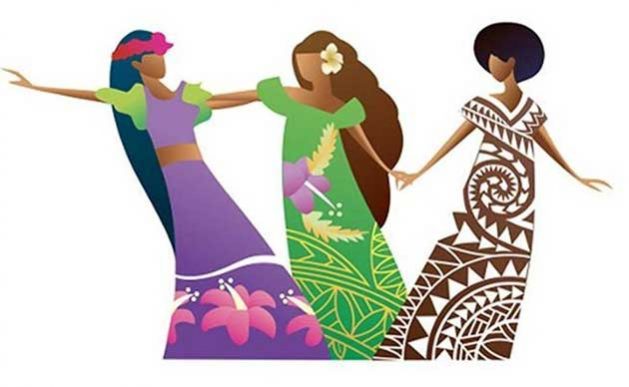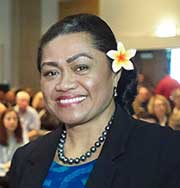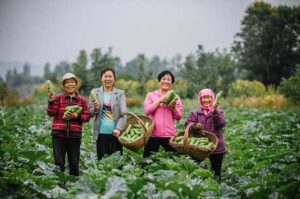
Civil Society, Education, Gender, Gender Violence, Global, Health, Humanitarian Emergencies, Inequity, Labour, Poverty & SDGs, TerraViva United Nations, Women & Economy, Women in Politics, Women’s Health
The following opinion piece is part of series to mark the upcoming International Women’s Day, March 8.
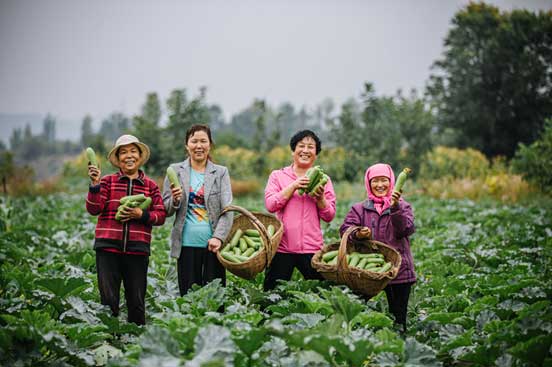
UN Women China Qinghai programme beneficiaries. Credit: UN Women
– Today is International Women’s Day (IWD), and the theme for this year’s celebration is “Women in leadership: Achieving an equal future in a COVID-19 world.” We recognize the tremendous contribution and leadership demonstrated by women and girls around the world in shaping our recovery from the COVID-19 pandemic and a more sustainable future.
A global review of the progress achieved towards commitments made at the Fourth World Conference on Women 25 years ago in Beijing, conducted by UN Women in 2020, reveals that no country has fully delivered on the Beijing Platform for Action, nor is close to it. Globally, women currently hold just one-quarter of the seats at the tables of power across the board and are absent from some key decision-making spaces, including in peace and climate negotiations.
This reality is despite the advances that we can see globally: there are now more girls in school than ever before, fewer women are dying in childbirth, and over the past decade, 131 countries have passed laws to support women’s equality.
However, progress has been too slow and uneven.
The impact of the COVID-19 pandemic is further exacerbating pre-existing inequalities and threatening to halt or reverse the gains from decades of collective effort – with data revealing that the pandemic will push 47 million more women and girls below the poverty line globally.
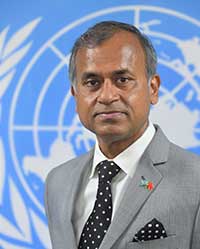
Siddharth Chatterjee
We also witness new global challenges emerging from the pandemic, such as the increased reports of violence against women trapped in lockdown throughout the world, forming a Shadow Pandemic. Women with disabilities facing further obstacles in accessing essential services. Women have lost their livelihoods faster, being more exposed to hard-hit economic sectors as they make up the majority of informal sector workers. Access to technologies have become a necessity, but the gender digital divide lingers, particularly in the least developed countries.
But in responding to the COVID-19 pandemic, women have stood tall at the frontlines, serving as health workers and caregivers, where they make up 70% of the global workforce. Women also lead in their capacities throughout government and civil society to give vital assistance, bringing their irreplaceable perspectives and skills to the table.
Answering these complex global challenges while tearing down the barriers to women’s participation and leadership now requires bolder political commitment backed up by adequate resources and targeted approaches to accelerate progress towards parity through legislation, fiscal measures, programmatic change, and public-private partnerships.
China has made progress in safeguarding women’s rights and promoting gender equality. Notably, China’s poverty alleviation achievements have had a multiplier effect on advancing women’s empowerment beyond alleviating poverty among women. Advances in girl’s education, access to sexual and reproductive healthcare, social protection and assistance are admirable – and important not just for the advancement of women’s rights – but in creating a “moderately prosperous” Chinese society with a “bright shared future” for all. Yet, as in many countries, there are still challenges that persist across the course of women’s lives.
Like elsewhere, systemic issues remain in equal pay for equal work and promotion opportunities for decent work in China. Under-representation of women in senior leadership roles impacts many sectors, with less than 10% of board members of listed companies in China being women.

Smriti Aryal
Disproportionate sharing of unpaid care work leaves women in China carrying 2.5 times the burden of men, all of which impacting the female labour force participation rate. The shadow pandemic of gender-based violence, like anywhere else, continues to be a concern for women and girls in China as widely reported and discussed in media already.
The newly enacted Civil Code offers opportunities to strengthen legislation, including judicial mechanisms, law enforcement and service delivery for addressing sexual harassment, sexual abuse and violence against women and girls. Robust implementation of the provisions for ending sexual harassment and abuse will be a step towards China’s demonstration of “Zero Tolerance” towards ending all forms of violence against women and girls.
The 14th Five-Year National Development Plan, 2021-2025 and the new 10-Year Plan on Development of Women and Children, 2021-2030, also present opportunities for China to ensure gender equality and women’s empowerment are at the centre of the development agenda and address the remaining gender gaps and challenges in the country. The world now looks to China for continued leadership on the SDGs and the Beijing Platform for Action.
We welcome the Government of China’s recent commitment to prioritizing women’s empowerment in its future development cooperation and global engagement. This comes at a time, when we need stronger global action and multilateralism to alleviate the long-lasting impacts of COVID-19 and accelerate actions towards the achievement of the SDGs. As we look at women’s rights issues that many countries are grappling with – poverty, maternal health, livelihood and food security, access to continued education, to name a few – are also the areas where China has seen the most progress domestically. South-South cooperation enables China to share its lessons and continue learning from others, to achieve genuine empowerment for women and girls around the world.
We recognize that gender equality and women’s empowerment are drivers for transformative change and a prerequisite for the achievement of all SDGs. The UN Sustainable Development Cooperation Framework, 2021-2025, signed between the United Nations System in China and the Government of China, is underpinned by this principle and prioritizes the advancement of women’s rights as a key programming area of its own. As the UN Country Team (UNCT), we stand ready to support and continue to work with the Government of China and all national actors for our concerted efforts towards advancing gender equality and women’s empowerment.
2021 is only the beginning of our journey on the Decade of Action for the SDGs. We have an unprecedented opportunity to do things differently for current and future generations of women and girls. On International Women’s Day, we call upon our partners and supporters to celebrate the leadership and contribution of China’s women, and become advocates, champions, and influencers that promote gender equality and women’s empowerment today, and every day.
Siddharth Chatterjee, UN Resident Coordinator in China & Smriti Aryal, Head of Office, UN Women in China
On behalf of the UN Country Team in China for International Women’s Day 2021

